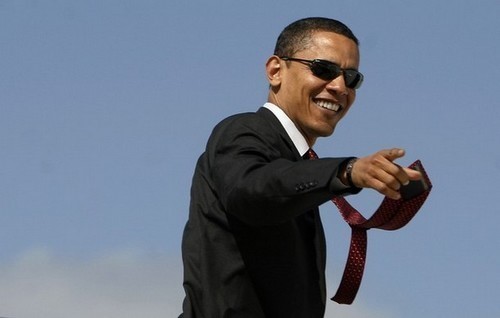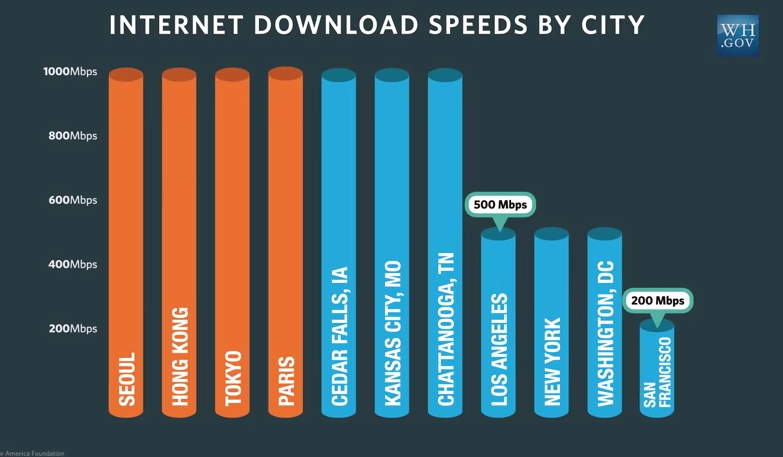
President Obama is speaking in Cedar Falls, Iowa today to outline an executive action that will increase Internet broadband speeds and decrease costs.
Note that while the United States may fall under the top 10 wealthiest nations in the world in terms of GDP, it’s only ranked number 24 on the NetIndex’s 2015 chart of global worldwide Internet speed. Chiefly responsible is the near monopoly that large companies have on Internet services, forcing consumers to pay fees not globally reflective of the Internet speed they’ve purchased — meaning, it’s severely overpriced compared to the rest of the world.
Worse yet are the laws in numerous states (19) prohibiting the cities and towns from building their own broadband network to compete with the giant ISP. This issue is especially pertinent in areas where ISP lack of investment has left consumers with low, inefficient speeds and no alternatives. President Obama’s plan, which will also be addressed in his sixth State of the Union address the following month, seeks to abolish these laws.
 The President selected Cedar Falls, Iowa as the site of his speech for its juxtaposition in broadband service when compared to other US cities. Cedar Falls has nearly double the Internet speed of New York City because it treats its Internet service as a utility.
The President selected Cedar Falls, Iowa as the site of his speech for its juxtaposition in broadband service when compared to other US cities. Cedar Falls has nearly double the Internet speed of New York City because it treats its Internet service as a utility.
“[There are] some steps we can take through executive action that allow us to make sure that every community can do what cedar falls is doing, that every community will be able to make the investments they need to speed up broadband and speed up competition, give consumers more choice, and as a consequences be in a better position….make sure all the uses of Internet that are available will be right there in their community,” explains President Obama in a YouTube video summarizing a report titled, “Community-based broadband solutions: The benefits of competition and choice for community development and high-speed Internet access.”
This is the second occurrence in the last few months where the President has publically highlighted major issues with FCC regulation. Back in November 2014, he urged the FCC to reclassify broadband as a carrier service in order to impose net neutrality.
Source: Ars Technica
Advertisement
Learn more about Electronic Products Magazine





